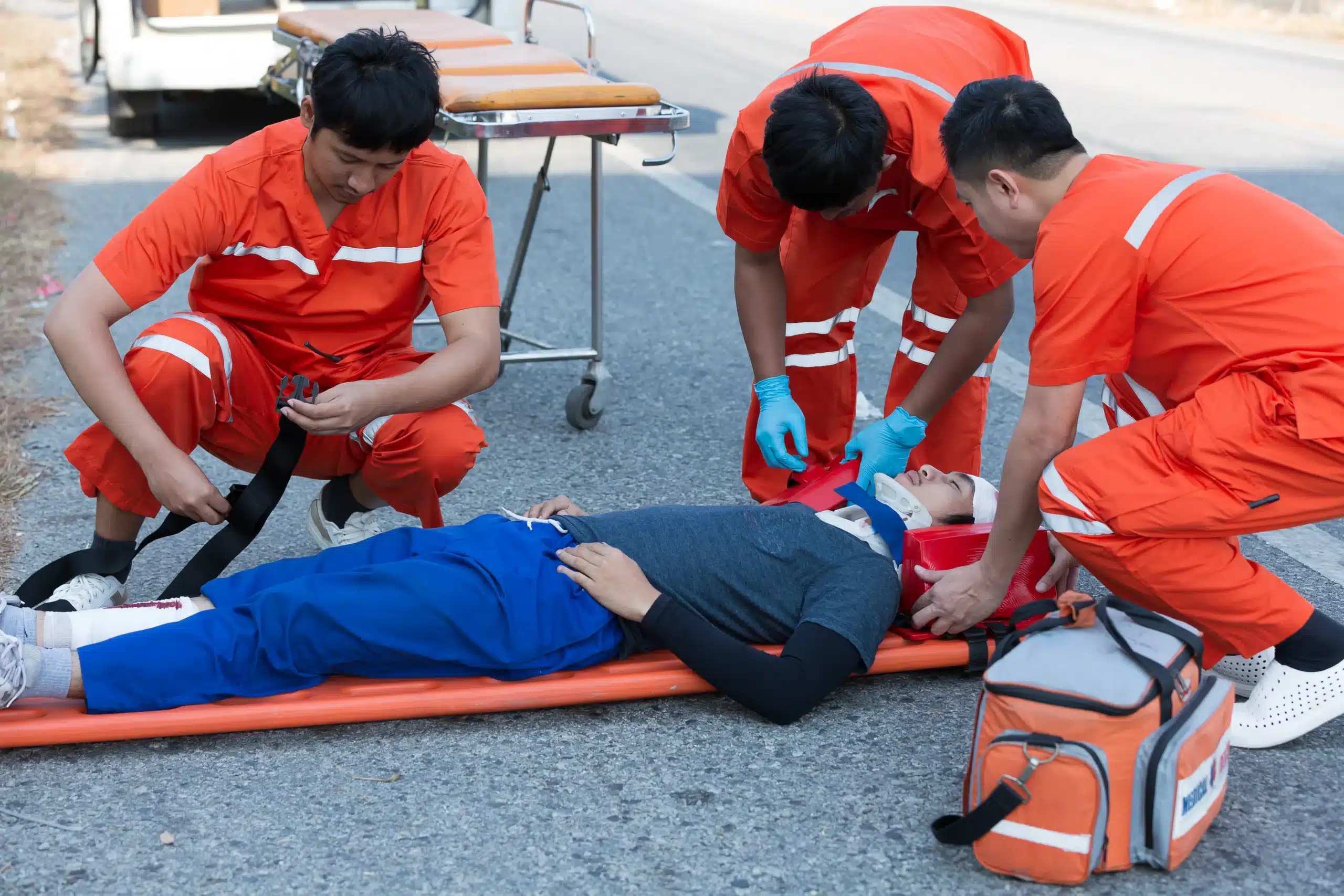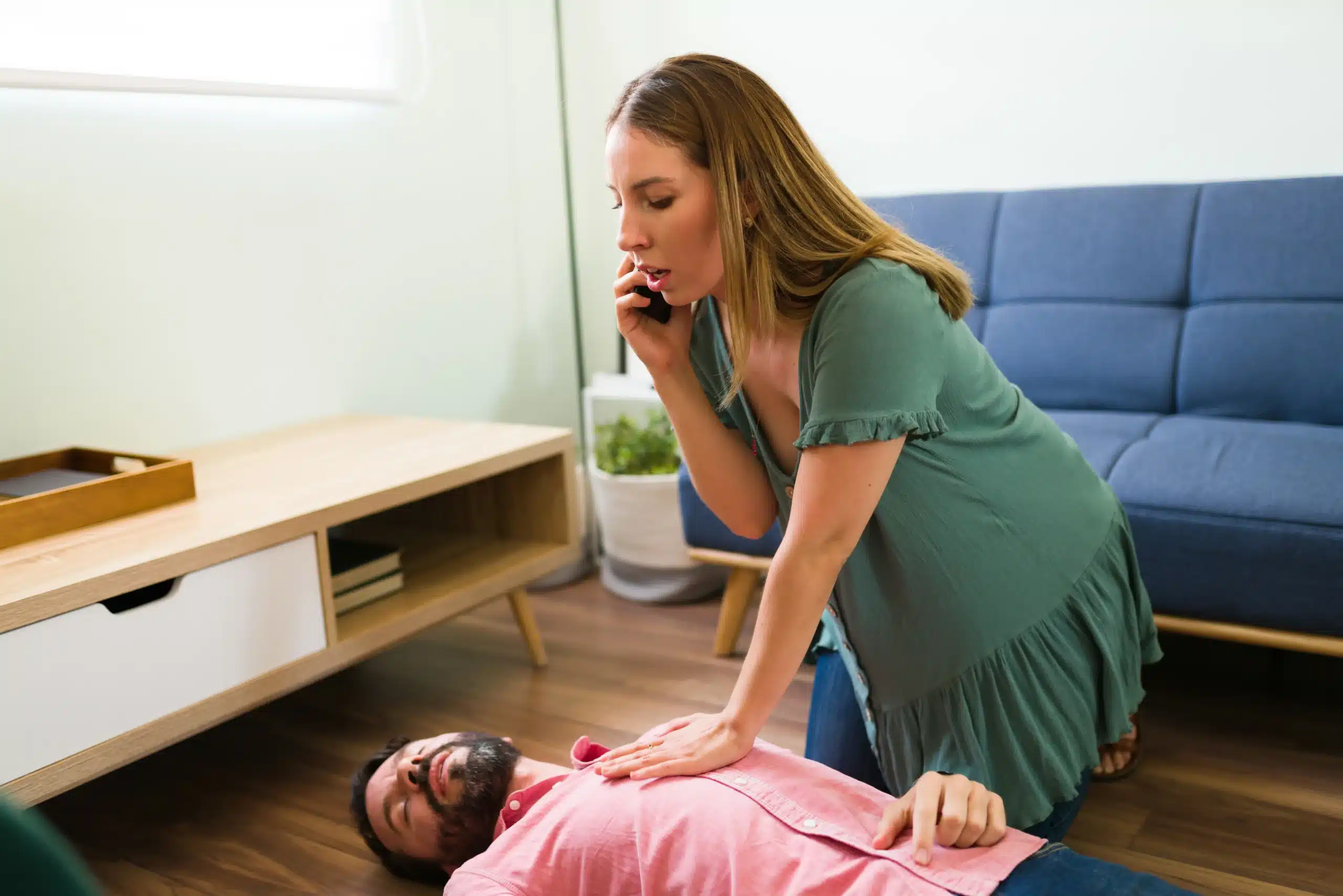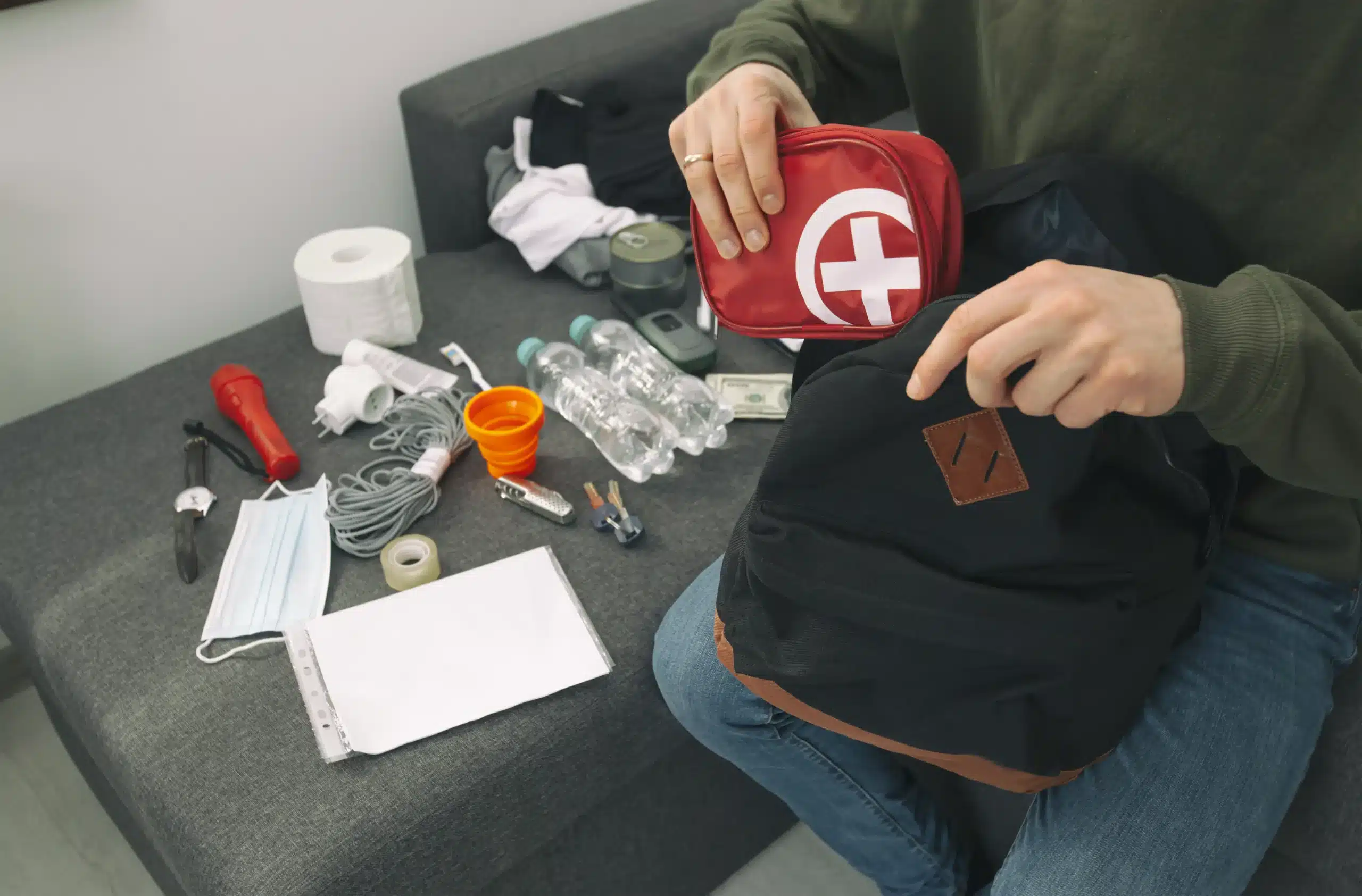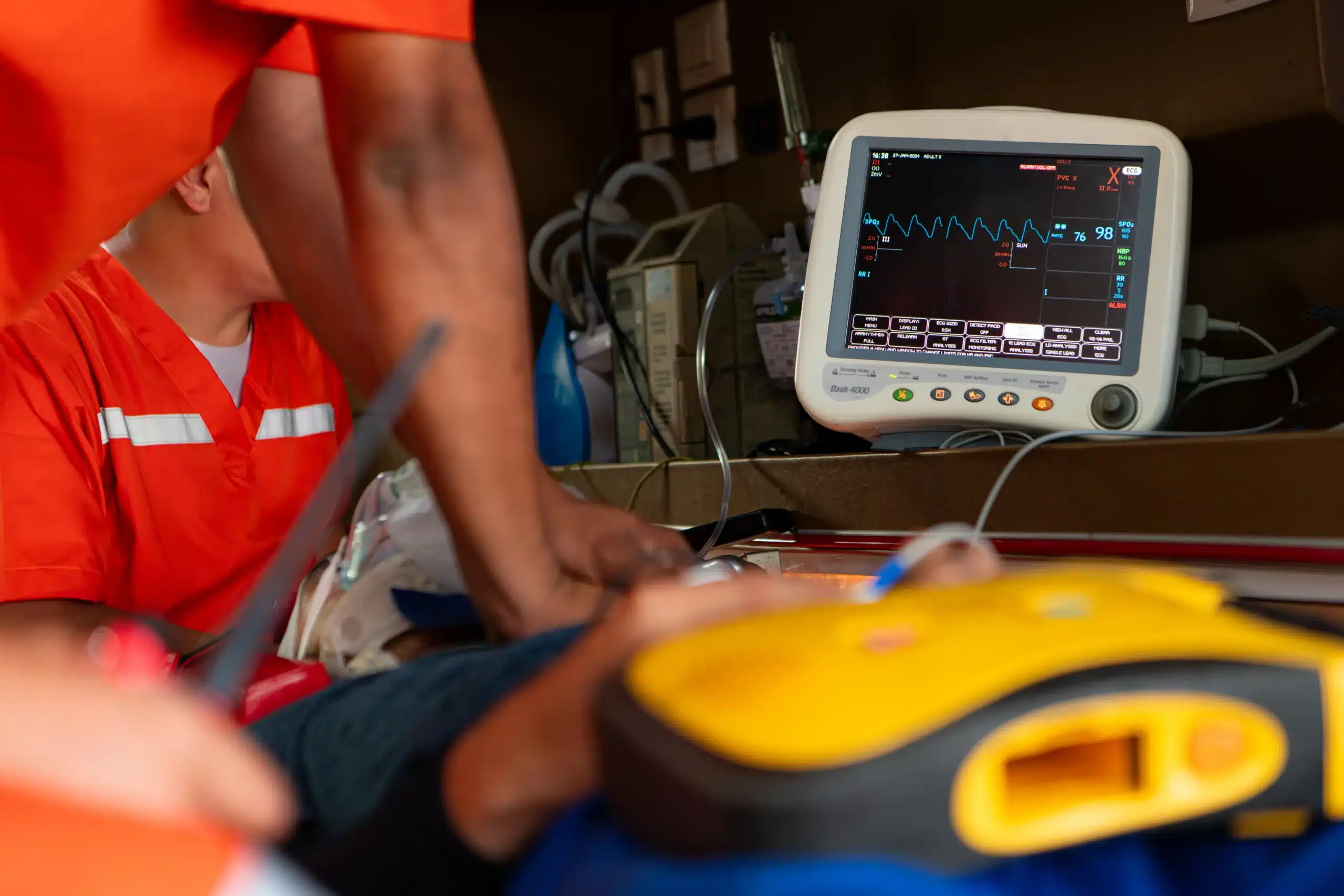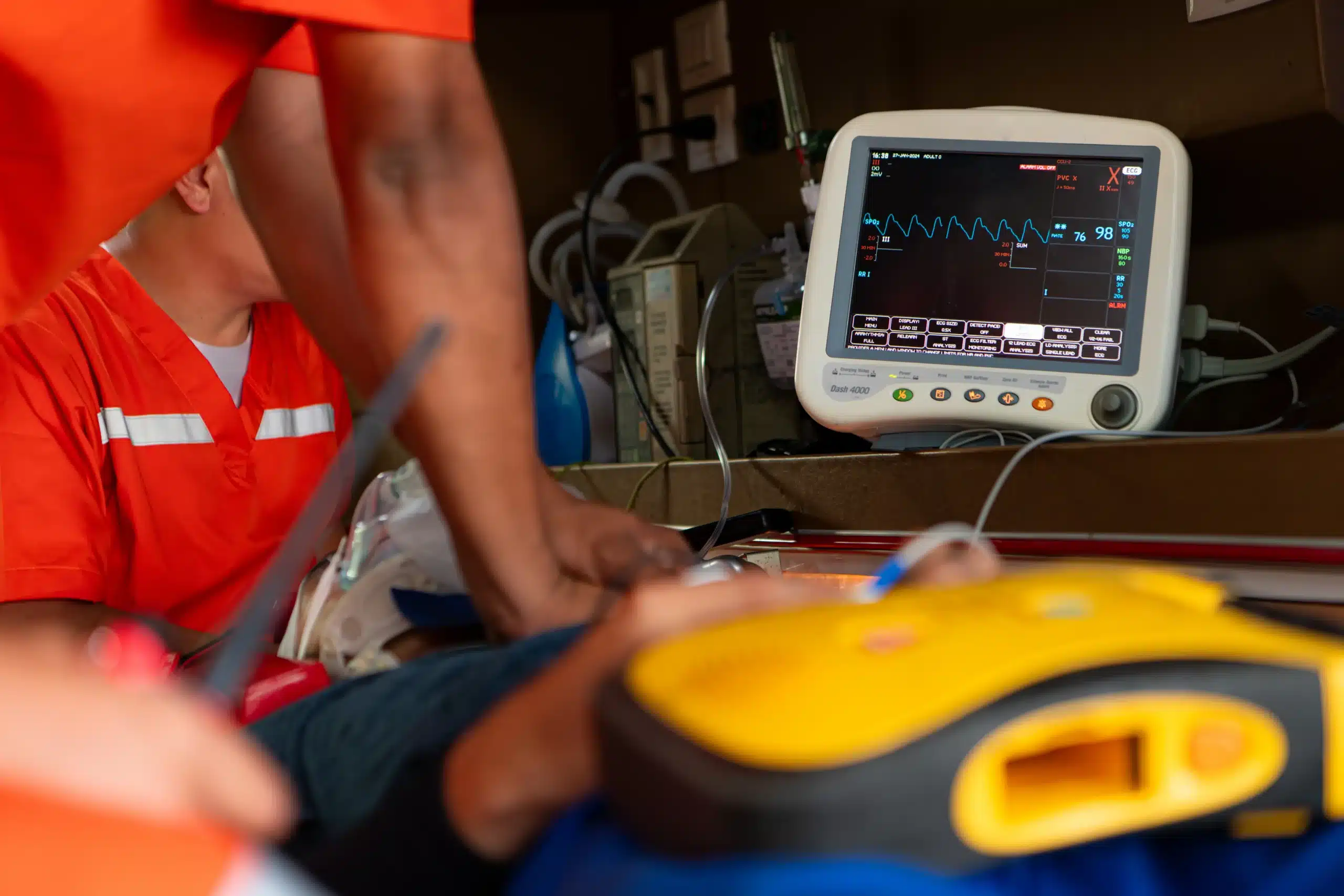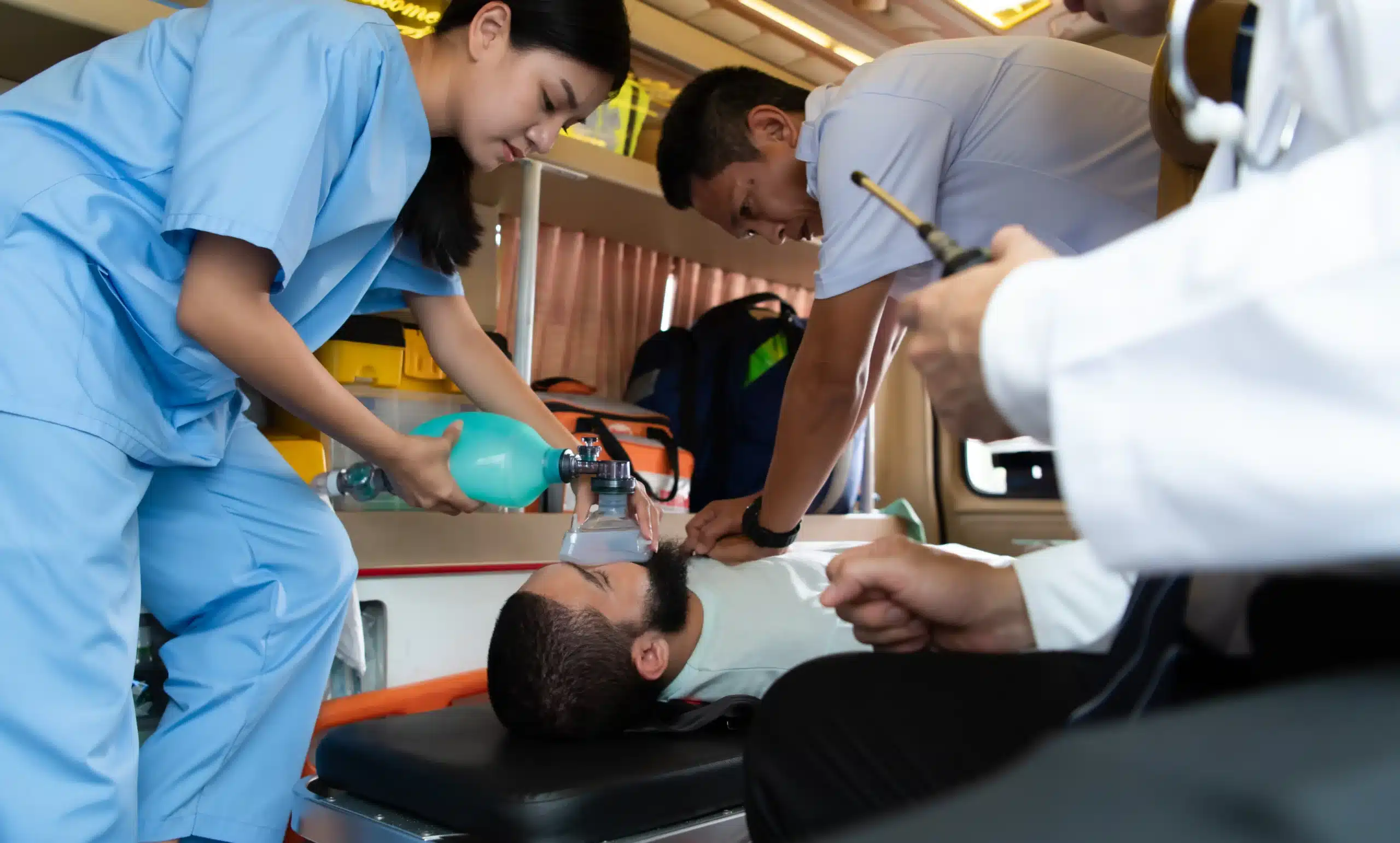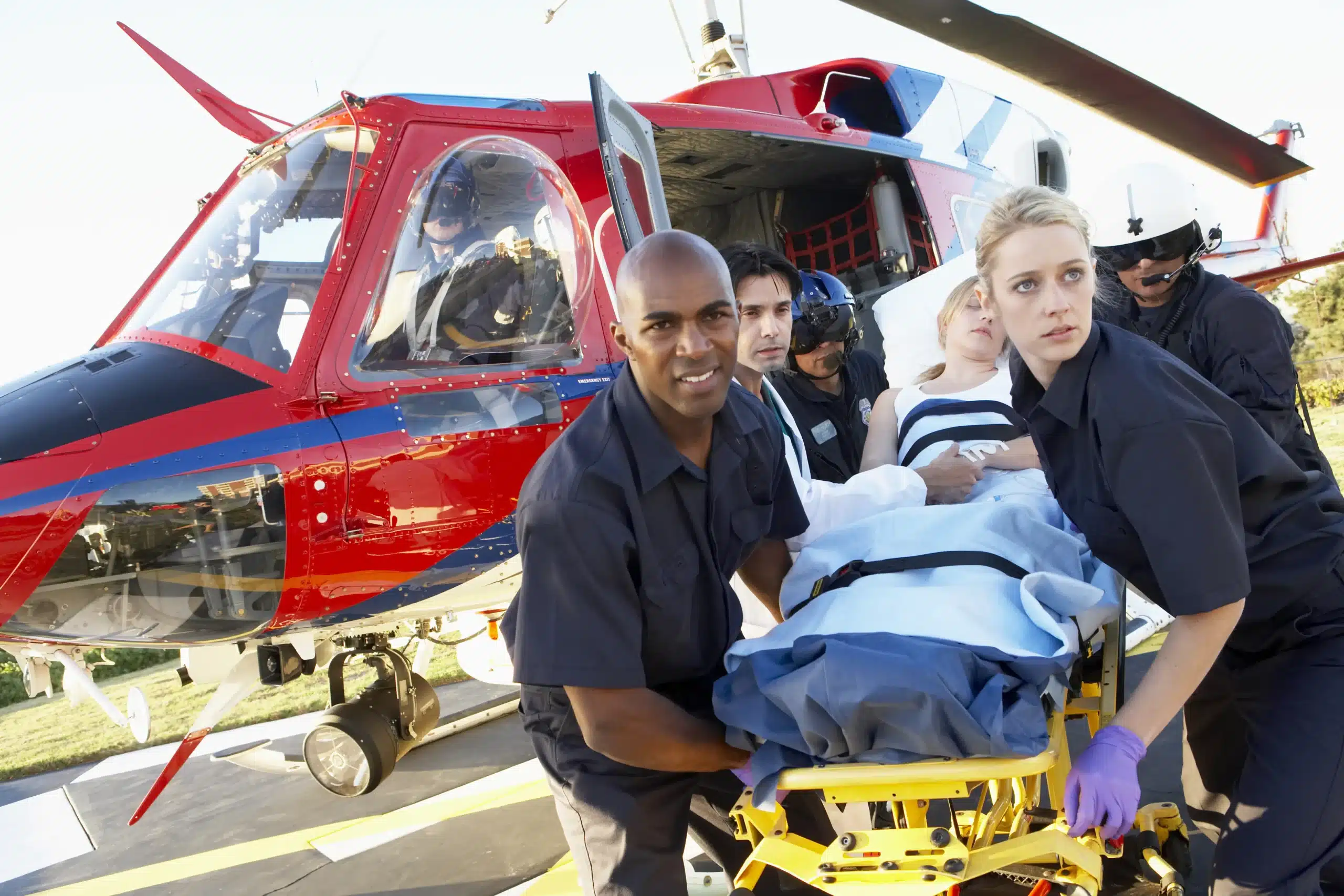First-aid training is an investment in yourself, your family, and your community. It’s about being prepared, knowing what to do, and having the confidence to act when every second counts. This article breaks down the essentials of first-aid training, from the basic skills everyone should know to specialized courses for specific professions. We’ll explore the different types of first-aid training available in Sacramento, discuss the certification process, and provide practical tips for getting the most out of your training. Whether you’re looking for basic first-aid in Sacramento or advanced life support certification, this guide will help you find the right path.
Key Takeaways
- First-aid training is a life skill, not just a job requirement: Equipping yourself with these skills allows you to confidently handle medical emergencies, providing immediate care in various situations, from minor injuries to critical incidents. Explore different course options to find the best fit for your personal or professional needs.
- Choosing the right course involves several factors: Think about your schedule, preferred learning style (online, in-person, or blended), and the specific skills you require. Research reputable providers like the American Red Cross, local hospitals, or specialized centers like Rocklin CPR Classes, comparing course content, instructor expertise, and available scheduling options.
- Staying current with your first-aid skills is crucial: Like any skill, regular practice and refresher courses are essential for maintaining proficiency and confidence. Consider incorporating practice scenarios and seeking out resources from your training provider to keep your skills sharp and ensure you’re always ready to respond effectively.
What is First-Aid Training and Why Do You Need It?
First-aid training gives you the skills to handle medical emergencies. It’s about providing immediate care until professional help arrives, going beyond simply calling 911. This can include anything from managing minor injuries like cuts and burns to addressing more serious situations like choking or a sudden cardiac arrest. Proper first-aid can significantly impact the outcome, potentially saving lives.
First-aid training programs focus on essential, life-saving techniques. These courses are often short, sometimes just a single day, and concentrate on practical skills. You’ll learn how to assess a situation, control bleeding, perform CPR, use an AED, and provide basic care for various injuries and illnesses. Standard first-aid certification builds on these core skills, covering more complex scenarios like managing fractures, head trauma, and severe bleeding. This advanced training is valuable for those in higher-risk environments or those who want a deeper understanding of first-aid procedures.
Earning your first-aid certification demonstrates your competence and is often a requirement for certain jobs, especially in healthcare, childcare, and education. Beyond professional obligations, first-aid training empowers you to confidently respond to emergencies anywhere, whether at home, work, or in the community. Knowing you can make a difference provides peace of mind and can truly be invaluable in critical situations.
Find the Right First-Aid Course in Sacramento
Finding the right first-aid course depends on your individual needs and goals. Whether you’re a parent, a healthcare professional, or just want to be prepared, Sacramento offers a range of options. Let’s explore some key first-aid training courses available.
Basic First Aid
Basic first-aid courses, such as those from the American Red Cross, teach essential life-saving skills. You’ll learn how to respond to common injuries like cuts, burns, and sprains, and how to manage medical emergencies until help arrives. These foundational skills empower you to handle everyday situations and provide immediate care when needed.
CPR and AED Training
CPR and AED training is critical for responding to cardiac emergencies. The Red Cross offers CPR classes in Sacramento in various formats, including in-person, online, or a blended approach. In-person training provides hands-on practice and a two-year certification meeting OSHA requirements. Learning CPR and how to use an AED can dramatically improve survival rates for cardiac arrest.
Pediatric First Aid
Pediatric first-aid training is essential for anyone working with children or parents. Courses like Standard Child Care First Aid address the specific needs of infants and children. Calgary First Aid Training explains the importance of understanding childhood injuries and illnesses for responsible caregivers.
Advanced Life Support (ACLS)
Advanced Life Support (ACLS) training gives healthcare providers and emergency responders advanced skills for managing complex medical emergencies. My CPR Certification Online discusses the importance of ACLS for healthcare professionals providing higher-level care in critical situations.
Pediatric Advanced Life Support (PALS)
Pediatric Advanced Life Support (PALS) focuses on the specific needs of children in medical emergencies. Rocklin CPR Classes offers ACLS and PALS certification, preparing healthcare providers for emergencies involving both adults and children.
Specialized Courses (Marine, Childcare, etc.)
Specialized programs cater to specific industries and environments beyond core first-aid. Marine First Aid, for example, addresses the unique challenges of water-based emergencies. My CPR Certification Online also covers these specialized courses. Childcare providers can find specialized training meeting state licensing requirements and focusing on children’s health and safety. Choosing the right specialized course prepares you for your profession’s specific challenges.
Top Sacramento First-Aid Training Providers
Finding the right first-aid training provider is crucial for a positive learning experience. Here’s a look at some reputable options in the Sacramento area:
Rocklin CPR Classes
Rocklin CPR Classes offers a range of American Heart Association (AHA) courses, including CPR and First Aid. They offer flexible scheduling, with classes available at your location any day of the week. CPR training costs vary depending on the provider, the type of course (CPR, First Aid, or a combined course), and the format. Many providers, like Rocklin CPR Classes, offer reduced rates for group training, making it a cost-effective choice for businesses and organizations. You can explore their BLS, ACLS, and PALS certifications on their website. For more information, contact Rocklin CPR Classes.
American Red Cross
The American Red Cross is a well-known provider of first-aid training. Their First Aid classes in Sacramento cover essential skills for responding to emergencies, resulting in a two-year certification upon successful completion. The Red Cross offers both in-person, hands-on training and blended learning options that combine online coursework with in-person skills demonstrations. Their curriculum covers adult and child first aid, highlighting the specific care techniques for different age groups.
Local Hospitals and Medical Centers
Many local hospitals and medical centers in the Sacramento area offer first-aid training programs. These programs often cater to both healthcare professionals and the wider community. Check with hospitals like Sutter Health or UC Davis Medical Center for potential training opportunities.
Community Colleges and Adult Education Centers
Community colleges and adult education centers frequently offer first aid and CPR courses as part of their continuing education programs. These courses are generally accessible and affordable, making them a good option for individuals seeking basic first-aid knowledge and certification. Check with your local community college or adult education center for their course schedules.
What Happens in a First-Aid Course?
First-aid courses blend theory and practical skills to equip you with the confidence to handle emergencies. Here’s a glimpse into what you can expect:
Hands-on Practice with Modern Equipment
Forget dry lectures and outdated materials. A good first-aid course emphasizes hands-on learning using modern equipment. You’ll gain practical experience with bandages, splints, CPR mannequins, and automated external defibrillators (AEDs). This hands-on training builds muscle memory and confidence, ensuring you can react effectively under pressure.
Scenario-Based Learning
Imagine a real-life emergency: a child choking, a burn victim, or someone experiencing a sudden allergic reaction. First-aid courses use scenario-based learning to immerse you in these situations. You’ll work through simulated emergencies, applying your knowledge and skills in a safe, controlled environment. This method helps you develop critical thinking and decision-making abilities, preparing you for the unexpected.
Certification Process
After successfully completing the course requirements, including written and practical assessments, you’ll receive your first-aid certification. This certification process typically involves demonstrating your proficiency in various first-aid techniques. Certification is usually valid for two years. Renewal involves taking a recertification course to refresh your skills and stay updated on any changes in first-aid protocols.
Tailored Content for Specific Audiences
First-aid courses aren’t one-size-fits-all. Providers often offer specialized courses for specific audiences, such as childcare providers, healthcare professionals, or those working in high-risk environments. This ensures you receive training relevant to your specific needs and the potential hazards you might encounter. For instance, a childcare first-aid course will cover topics like infant and child CPR, while a wilderness first-aid course will focus on injuries specific to outdoor settings.
Cost of First-Aid Classes in Sacramento
Knowing the cost of first-aid training helps you budget and compare options. Let’s break down typical expenses and explore ways to find the best value.
Average Pricing and Competitive Options
In Sacramento, first-aid training courses typically cost around $80, though prices vary depending on the provider and the specific course content. Checking with a few different providers, like Rocklin CPR Classes, helps you compare pricing and find what fits your budget. Ask about any current promotions or discounts. A little research can go a long way.
Group Discounts and Promotions
If you’re training with a group, you might be eligible for a discount. Many training centers, including Rocklin CPR Classes, offer reduced rates for group training. This works well for workplaces, community groups, or even a group of friends. Check with your chosen provider about group discount requirements.
Long-Term Benefits of First-Aid Training
While there’s an upfront cost for first-aid training, consider the long-term value. Learning these skills empowers you to respond confidently during emergencies. This preparedness can make a significant difference, potentially saving a life. Think of first-aid training as an investment in your well-being and the safety of those around you. The confidence and skills you gain are invaluable.
Certification: Details and Validity
Knowing the ins and outs of first-aid certification is just as important as the training itself. This section clarifies how long your certification lasts, how to renew it, and the differences between online and in-person options.
Duration of Certification
First-aid certifications are typically valid for two years. This timeframe reflects the ongoing evolution of best practices and the importance of refreshing your skills. After two years, you’ll need to recertify to stay current and maintain your credentials. This ensures you’re always prepared to provide effective assistance during emergencies.
Recertification Requirements
When your certification is close to expiring, you’ll need to take a recertification course. These refresher courses cover core first-aid principles and any updated guidelines from the American Red Cross. Recertification keeps your skills sharp and demonstrates your continued commitment to providing high-quality care.
Online vs. In-Person Certification Options
You have choices when it comes to first-aid training. Both online and in-person options offer distinct advantages. In-person classes provide hands-on learning and direct interaction with instructors, allowing for immediate feedback and personalized guidance. Online courses offer flexibility and convenience, fitting into busy schedules. However, some online courses may not include the hands-on skills assessment required for certain workplace certifications, like those mandated by OSHA. Blended learning, combining online coursework with in-person skills sessions, offers a balance between flexibility and practical application. Consider your learning style and specific requirements when choosing the best format.
Choose the Right First-Aid Course
Picking the right first-aid course is a personal decision. What works for your neighbor might not be the best fit for you. Think about your current situation, your schedule, and your learning style to find a course that sets you up for success.
Assess Your Needs
Before you start searching for classes, ask yourself why you want first-aid training. Are you required to have certification for your job, or are you simply preparing for potential emergencies at home? Different jobs and personal situations have unique demands. For example, healthcare providers need more advanced training than someone who wants basic knowledge for their family. Consider what skills will be most valuable to you. Many providers offer combined CPR/AED/First Aid classes for more comprehensive training.
Consider Time Commitment and Flexibility
Life gets busy, so finding a course that fits your schedule is essential. Think about how much time you can realistically commit to training. Look for providers that offer flexible scheduling options, including weekend and evening classes, to accommodate various lifestyles. On-site training, where the instructors come to your location, can be a huge time-saver for group training. Also, consider the course format. Do you prefer in-person, hands-on learning, or would an online component work better for your schedule? Rocklin CPR Classes offers a variety of scheduling options to meet different needs.
Evaluate Course Content and Instructor Expertise
Not all first-aid courses are created equal. Look for courses certified by reputable organizations like the American Heart Association. A quality course should cover essential topics like treating burns, wounds, and choking. Experienced instructors who are passionate about first aid can make a big difference in your learning experience. They can answer your questions and provide real-world examples. Hands-on practice with modern equipment is also crucial for building confidence and mastering essential skills. A good instructor will create a comfortable learning environment where you can ask questions and practice your skills without feeling intimidated. For quality instruction and hands-on training, explore options like those offered by Rocklin CPR Classes.
Get the Most Out of Your First-Aid Training
Knowing what to expect and how to prepare can make a real difference in your learning experience. This section offers practical advice to help you maximize your first-aid training, from pre-course prep to maintaining your skills long after you receive your certification.
Prepare for Your First-Aid Course
A little preparation goes a long way. Before your first-aid class, take some time to familiarize yourself with basic first-aid principles. Even a quick overview can give you a foundation for the material and help you absorb information more effectively. The American Red Cross offers helpful resources to get you started. Also, think about any specific questions you have about first aid and jot them down so you can ask your instructor. Finally, wear comfortable clothing to your in-person training, as many courses involve hands-on practice and simulations.
Practice and Maintain Skills After Training
First-aid skills are perishable. Regular practice is key to keeping your knowledge fresh and your reactions sharp. Look for opportunities to refresh your skills. Consider taking a refresher course or practicing with friends and family. Hands-on practice with realistic scenarios is especially helpful for building muscle memory and confidence. Many training providers, including Rocklin CPR Classes, offer refresher courses and resources. Using training mannequins with feedback can significantly improve the quality of your CPR technique and overall preparedness. Consistent practice is the best way to ensure you’re ready to respond effectively in a real emergency.
Why Choose Rocklin CPR Classes?
When it comes to first-aid and CPR training, choosing the right provider matters. Rocklin CPR Classes offers distinct advantages designed with your specific needs and busy schedule in mind.
Flexible Scheduling Options
We know juggling work, family, and other commitments can make it tough to fit in essential training. Rocklin CPR Classes offers flexible scheduling, seven days a week, to accommodate your busy lifestyle. We offer AHA courses including BLS, ACLS, PALS, CPR, and First Aid. We can even bring the training to your location, minimizing travel and disruption.
On-Site Training Availability
We make it easy to get certified without the hassle of traveling to a separate facility with our convenient on-site training option. Whether you’re a business looking to certify your team, or a group of friends wanting to learn together, we can come to you. This personalized approach allows us to focus on your group’s specific needs and create a more engaging learning experience.
Experienced Instructors
Our instructors are highly experienced and AHA-certified. They bring real-world knowledge and a passion for teaching to every class. We believe that experienced instructors are essential for providing high-quality training that equips you with the skills and confidence to respond effectively in emergencies. They’ll guide you through hands-on practice with modern equipment, ensuring you’re fully prepared.
Comprehensive Course Offerings
Rocklin CPR Classes offers a wide range of courses to meet diverse needs, from basic first aid and CPR to advanced life support. Whether you’re a healthcare professional, a childcare provider, or simply want to be prepared, we have a course for you. We offer BLS, ACLS, and PALS certifications. We also offer discounts for group classes. Contact us to learn more.
Continuous Curriculum Updates
The medical field is constantly evolving, and so are our training programs. We’re committed to providing the most current and relevant training available, regularly updating our curriculum to reflect the latest guidelines and best practices. This commitment to continuous improvement ensures you receive high-quality training that aligns with current standards. You can trust that the skills you learn with us are current and effective.
Common First-Aid Training Questions
Frequently Asked Questions
Naturally, you’ll have some questions about first-aid training. Here are a few common ones:
-
Where can I find first-aid classes near me? Organizations like the American Red Cross offer first-aid courses in Sacramento. You can also find training through CPR Certification Sacramento and other local providers. Many offer various formats, including in-person, online, and blended learning. In-person classes are a great way to get hands-on training and often lead to a two-year certification that meets OSHA requirements. Consider which format best suits your learning style and schedule. Rocklin CPR Classes also offers a variety of convenient options.
-
What type of first-aid training is right for me? This depends on your specific needs. Basic first-aid courses cover essential skills for common injuries. If you’re a healthcare provider, you might need more advanced training, such as ACLS or PALS. For those working with children, pediatric first-aid training is essential. Think about your work environment and who you might need to assist in an emergency. Contacting a training provider like Rocklin CPR Classes can help you determine the best fit.
-
How long is a first-aid certification valid? Most first-aid certifications are valid for two years. It’s important to stay up-to-date with the latest guidelines and techniques, so make sure you recertify before your current certification expires. Check with your certifying organization for specific recertification requirements.
Addressing Common Misconceptions
Unfortunately, several misconceptions surround first aid. Let’s clear up a few:
-
Putting butter or oil on a burn helps. This is false and can actually worsen the burn. The best course of action for a minor burn is to cool it with cool (not ice cold) water and cover it loosely with a sterile dressing. For serious burns, seek immediate medical attention. Never apply home remedies without consulting a medical professional. The American Burn Association offers detailed information on burn care.
-
You can be sued for providing first aid. Good Samaritan laws generally protect those who provide reasonable assistance in an emergency. While it’s essential to act within the scope of your training, the fear of legal action shouldn’t prevent you from helping someone in need. Focus on providing appropriate care based on your first-aid training. If you’re concerned about liability, discuss specific scenarios and legal protections with a qualified instructor during your first-aid course.
-
First aid is only for medical professionals. Absolutely not! Anyone can benefit from first-aid training. Knowing how to respond to common injuries and emergencies can make a significant difference. Empowering yourself with these skills can help you protect yourself, your family, and your community. Consider taking a first-aid course to gain confidence and preparedness.
Related Articles
- Workplace CPR and First-Aid Training Importance
- CPR Training in Sacramento: Your Guide – Rocklin CPR Classes
- Why CPR is Critical in Healthcare – CPR and First-Aid Training
- The Importance of CPR in Saving Lives – Rocklin CPR Classes
- BLS Classes in Sacramento: Your Complete Guide – Rocklin CPR Classes
Frequently Asked Questions
How do I choose between basic first aid and a more advanced course? Think about your daily life and work. If you’re a parent, teacher, or simply want basic preparedness, a standard first-aid course is a great start. Healthcare providers, first responders, or those in higher-risk jobs often require more specialized training like ACLS or PALS.
What if I’m nervous about the hands-on parts of the training? Totally understandable! Most first-aid courses create a supportive learning environment. Instructors guide you through each skill step-by-step, offering plenty of practice time. It’s all about building confidence, not performing perfectly on the first try.
Are online first-aid certifications accepted everywhere? While online courses offer flexibility, double-check if your workplace or licensing board requires in-person training. Some certifications, especially those involving CPR, often mandate a hands-on skills assessment component that online-only courses may not provide.
How can I make sure I remember what I learned after the course? Like any skill, regular practice is key. Refresh your knowledge with online resources, quick guides, or even by practicing with friends or family. Consider taking a refresher course every year or so to stay sharp and confident.
What if I freeze up during a real emergency? It’s normal to feel overwhelmed in a stressful situation. That’s why scenario-based training is so valuable. Practicing different emergency situations in a safe environment helps build your confidence and prepares you to react more effectively under pressure. Remember, any help you can provide is better than none.
